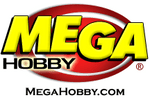Description
The Dornier Do-335 ‘Pfeil’ (Arrow) was the fastest piston-engine German Luftwaffe aircraft of WWII, and was also the only military aircraft of the time to feature a ‘push-pull’ engine layout airframe. It was robust and highly maneuverable, and could actually cope with a rear engine failure. It was also one of the few aircraft of the time that was fitted with an ejection seat. Another unusual feature of this aircraft was the cruciform tail layout. A downward pointing fin was included, which would hopefully negate any possible rear propeller damage that could result from an awkward landing. First flown in 1943, the project wasn’t without its problems. Whilst the aircraft was inherently stable on both ground and in the air, due to the rear engine resting behind the center of gravity, it did suffer from some technical issues that were never overcome, such as a weak undercarriage. Despite the great hopes that the Nazis had for the Do 335, like many of their wonder designs, it simply came too late to make any difference, with only 37 being built by the war’s end. Allies evaluation of this Do 335 ‘Pfeil’ showed that it was an excellent performer and could have been a serious opponent. The last surviving example of the Do 335 is the standard A-0/1 fighter-bomber seen today at the NASM.
Please see the recommended colors and their numbers below.
________________________________
Product Details:
Scale: 1/32
Skill Level: 4
Length: 17.1”
Wingspan: 17”
Parts: 348
- Painting and assembly required
- 13 sprues
- One decal sheet
- Photo-etched parts
- Includes two metal nose weights
- Clear parts
- Authentic surface details
- Detailed cockpit
- Accurate engine assembly
- Canopy and access panels can be modeled open or closed
- Landing gear can be assembled up or down
- Illustrated instructions
*Experience with photo-etched parts is recommended*
*Cyanoacrylate glue is required for photo-etched parts*
________________________________
Paint Guide:
A. Dornier Do 335 B-6, W.Nr. 240312, 1./NJGr.10, Germany, summer 1945 (what-if)
RLM 82 Light Green XF-5, XF-2 (mixing directions in instructions)
RLM 65 Light Blue XF-23, XF-2 (mixing directions in instructions)
RLM 70 Black Green XF-62, XF-49 (mixing directions in instructions)
RLM 66 Black Grey XF-63
RLM 02 Grey XF-22
Flat Black XF-1
Semi-Gloss Black X-18
Aluminum XF-16
Gunmetal X-10
Metallic Grey XF-56
Leather XF-10
Tire Black XF-69
Dark Grey XF-24
Blue X-14
Beige XF-57
RLM 75 Grey Violet XF-24, XF-50 (mixing directions in instructions)
RLM 76 Light Blue XF-2, XF-23, XF-66 (mixing directions in instructions)
Flat White XF-2
Flat Red XF-7
Clear Green X-25
Clear Red X-27
B. Dornier Do 335 B-6, W.Nr. 240371, 2./NJG 11, Eastern Front, autumn 1945 (what-if)
RLM 81 Brown Violet XF-51
RLM 82 Light Green XF-5, XF-2 (mixing directions in instructions)
RLM 65 Light Blue XF-23, XF-2 (mixing directions in instructions)
RLM 70 Black Green XF-62, XF-49 (mixing directions in instructions)
RLM 66 Black Grey XF-63
RLM 02 Grey XF-22
Flat Black XF-1
Semi-Gloss Black X-18
Aluminum XF-16
Gunmetal X-10
Metallic Grey XF-56
Leather XF-10
Tire Black XF-69
Dark Grey XF-24
Blue X-14
Beige XF-57
RLM 76 Light Blue XF-2, XF-23, XF-66 (mixing directions in instructions)
Flat White XF-2
Flat Red XF-7
Clear Green X-25
Clear Red X-27
C. Dornier Do 335 M17, W.Nr. 230017, CEV, Bretigny-sur-Orge, France, 1947
RLM 70 Black Green XF-62, XF-49 (mixing directions in instructions)
RLM 66 Black Grey XF-63
RLM 02 Grey XF-22
Flat Black XF-1
Semi-Gloss Black X-18
Aluminum XF-16
Gunmetal X-10
Metallic Grey XF-56
Leather XF-10
Tire Black XF-69
Dark Grey XF-24
Blue X-14
Beige XF-57
Khaki XF-49
Flat White XF-2
Clear Green X-25
Clear Red X-27
_______________________________











